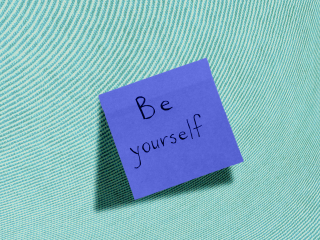Alan Ritchson Gets Real About How Bipolar Disorder Impacts His Work
The 'Reacher' actor talks about mania, depression, and suicidal ideation.
You might know Alan Ritchson as former military officer Jack Reacher on Amazon Prime’s Reacher series, or even as a District 1 tribute in The Hunger Games Catching Fire. Ritchson has made a career playing characters with ultra strong physiques, and now, he’s showing what emotional strength can look like as he opens up about his mental health in a new interview.
Ritchson was diagnosed with bipolar disorder when he was 36.
As the actor explains in the March issue of Men’s Health, he’s been learning to manage the mental health condition with weekly psychiatrist appointments and support from his wife, Catherine, and his assistant who keep an eye out for symptoms.
Ritchson tells Men’s Health that he tends to experience more mania than depression. Sometimes those manic symptoms can manifest as a very specific and sudden shopping spree. “It’s this thing like, I gotta find a perfectly white pair of shoes that look like a tennis shoe but aren’t. Three days later, eight pairs of shoes show up that are all identical. And I’m like,‘Oh, shit, I’m manic right now,’” he tells the magazine. JFYI: The impulsiveness of manic episodes can lead to spending sprees for some people, according to The Diagnostic and Statistical Manual of Mental Disorders.
At work, he says the mania, coupled with feeling like projects aren’t reaching their fullest potential, can make him become kinda obsessive. “It usually comes out in a very—not in a mean way—but in a ‘this has to be better’ way,” he tells the magazine.
The actor even recounts a story about how the Reacher stunt coordinator quit (but later returned to work) after Season 1 because he thought Ritchson was being too reckless, wanting to do certain fight scenes and not following instructions. “I was like, ‘I’m doing the fucking stunt.’ It was manic behavior,” Ritchson recalls.
When it comes to the depressive episodes, Ritchson says those impact his work a little less because he’s so focused on set and people don’t always notice he’s feeling down.
Ritchson also mentions in the interview that he’s dealt with periods of suicidal ideation, which unfortunately isn’t uncommon for people with bipolar disorder. In his case, talking about his mental health and helping others feel less alone is one way he copes with those dark times.
What is bipolar disorder?
FYI, bipolar disorder is estimated to impact up to 5% of people and is sometimes called manic-depressive disorder. Basically, it leads to significant shifts in someone’s mood and energy level. While there’s no specific cause for bipolar disorder, some research suggests that factors like genetics and your upbringing can play a role.
Ritchson doesn’t specify which type he was diagnosed with, but there are three core types: bipolar I, bipolar II, and cyclothymic disorder. Time for a mini psychology lesson:
With bipolar I, you experience manic episodes and sometimes depressive ones too. When it comes to the mania, that typically feels like you’re super wired, giddy, or on-edge. You might also experience grandiose thinking and probably wouldn’t sleep or eat very much during this period, which lasts for at least one week. Sometimes, severe manic episodes can lead to hospitalizations too because some people might experience symptoms such as hallucinations that cause them to lose touch with reality. “People have more energy than they know what to do with,” Francis Mondimore, MD, associate professor at Johns Hopkins School of Medicine, previously told Wondermind. As for the depression, those episodes last for at least two weeks and can make even the smallest things feel overwhelming.
Bipolar II, on the other hand, involves depressive episodes along with a less extreme version of mania, called hypomania. This shift can be a little less noticeable and might look like feeling more energized and productive but also impulsive and reckless for at least four days. Still, the depressive aspect of the condition can be debilitating and distressing.
Cyclothymic disorder is similar to bipolar II, but the symptoms of hypomania and depression last for at least two years and aren’t as intense as the episodes someone might have with a bipolar II diagnosis.
You can learn more about diagnosing, treating, and living with this condition in our explainer on bipolar disorder.
This isn’t the first time Ritchson has opened up about his mental health.
Through the years, Ritchson has been candid about his mental health—and men’s mental health in general—on his InstaChurch YouTube channel and in various interviews. “I think we, as men, are not equipped to address the emotional ocean that exists within us, especially when it’s born out of trauma in our past,” he said in a 2023 video about depression and bipolar disorder. “Men, we’re raised to swallow pain, to power through. These [traits] are not compatible with emotionally healthy, vibrant males.” And in a 2022 conversation on the Inside of You podcast, Ritchson confessed that depression made it hard for him to function, and he didn’t want his kids to see him like that. He thought he’d be doing everyone a favor by not being around anymore, which he came to realize is the biggest lie depression can tell you.
With the help of his wife, some friends, and a therapist, he was able to work through the suicidal thoughts, as he said in the podcast. “There is hope for a better day where we can remember why we’re here, remember who we are, and take time to find our purpose.”
There are so many misconceptions about and stigma around bipolar disorder—it’s not just having mood swings. So it’s always helpful to see well-known people like Ritchson (and other high-profile folks like Selena Gomez and Andy Dunn) show that it’s possible to manage the condition and have a fulfilling life.
There’s a lot more that goes into living with and being diagnosed with bipolar disorder, so if you think it might be something you’re dealing with, reaching out to a mental health professional is a great first step. To get connected with more information about bipolar disorder and how it’s treated, check out the National Institute of Mental Health, the American Psychiatric Association, and the National Alliance on Mental Illness (NAMI). Heads up: NAMI even has a great podcast series on the condition. The Depression and Bipolar Support Alliance and the International Bipolar Foundation also have tons of resources and real-people stories to help you learn more and get connected with others who have been diagnosed with the condition.
Wondermind does not provide medical advice, diagnosis, or treatment. Any information published on this website or by this brand is not intended as a replacement for medical advice. Always consult a qualified health or mental health professional with any questions or concerns about your mental health.




